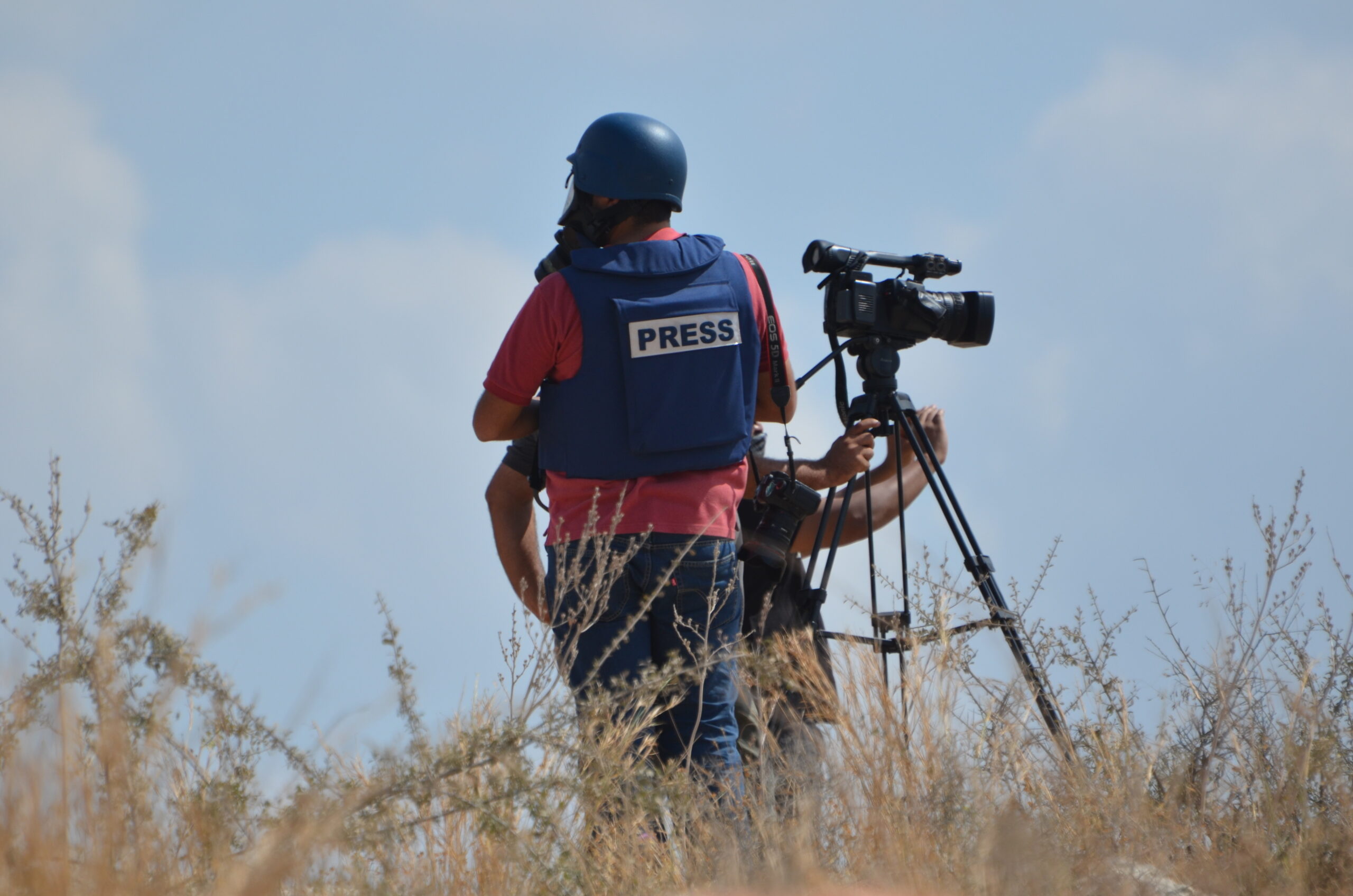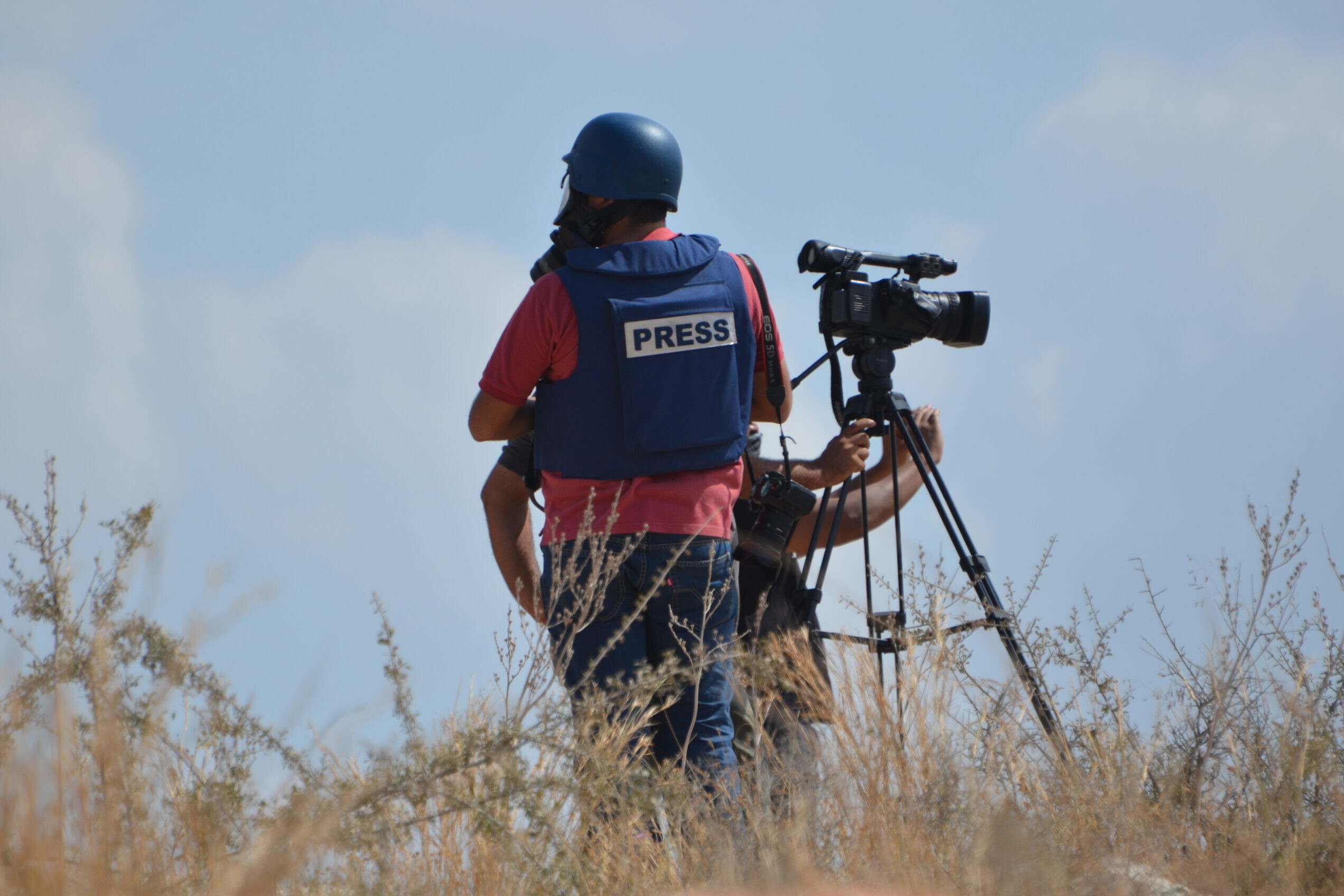JOINT STATEMENT
“Your credibility is on the line”: MFC urged to take action to protect journalists in Gaza
28th March 2024
The Public Media Alliance has joined a coalition of media freedom and journalist organisations in calling on member states of the Media Freedom Coalition to take meaningful action to protect the safety of journalists and access to information in Gaza.

The Media Freedom Coalition (MFC) is a partnership of 50 countries across six continents, working together proactively to advocate for media freedom at home and abroad. Established in July 2019, The MFC advocates for the protection of journalists and media professionals, and endeavours to hold those responsible for obstructing their work accountable.
Read the letter below.
MFC Member States your credibility is on the line: we need your meaningful action for the safety of journalists and access to information in Gaza
MFC Member States your credibility is on the line: we need your meaningful action for the safety of journalists and access to information in Gaza. We write you today as a collective of concerned members of civil society working on media freedom globally. While on December 5, 2023, 24 members of the Media Freedom Coalition expressed concern about the plight of journalists in Israel and Gaza, in more than five months of a devastating conflict, with record numbers of journalists killed, primarily by Israeli forces in Gaza, there has been no credible action taken by MFC Member States. The targeted or indiscriminate killing of journalists is a war crime. Despite recent UN figures that at least 122 journalists have been killed, the collective official silence of the MFC member states as a group regarding these killings, with increasing evidence of journalists being specifically targeted, along with the lack of actions to ensure that international journalists can access and report from Gaza, seriously diminishes our collective ability to credibly stand up for media freedom globally.
The global rules-based order is served by predictability and consistency, as it all comes down to the shared commitment to live up to these norms in practice. Unfortunately we now witness the opposite with many states who routinely take initiative to promote media freedom and safety of journalists remaining silent on this issue. Calls for accountability in other situations are no longer credible when those calls are not made now in the face of such human suffering, destruction of media facilities, communication blackouts, arrests and threats that extend to the Occupied West Bank alongside increased censorship measures within Israel, and a consistent lack of accountability for the alleged targeting of journalists during this conflict.
We need journalists on the ground to be our eyes and ears. Journalists in Gaza face the most serious risks to their lives and urgently need our support, as outlined in a joint letter of solidarity by international media outlets published on February 28. Furthermore, the International Court of Justice in its January 24, 2024 order on provisional measures, underlined the importance of evidence collection; journalists play a crucial role in this effort, even more so when other pillars of accountability are weakened or absent.
This requires action from your Member States to consistently and publicly call for the treatment of Palestinian journalists, who continue to report from Gaza in spite of the risks, as civilians according to established norms of International Humanitarian Law, as well as urging for the immediate and unfettered access of international journalists to Gaza.
Finally, the growing evidence of targeted killings of journalists in this war requires a clear and joint call for prompt, independent, effective and thorough investigations into these killings in line with the UN Manual on the Effective Prevention and Investigation of Extra-Legal, Arbitrary and Summary Executions (the Minnesota Protocol).
Signed:
- 7amleh – Arab Center for the Advancement of Social Media
- ACOS Alliance
- ARIJ
- ARTICLE 19
- Asociación Nacional de Periodistas del Perú
- Association for Progressive Communications (APC)
- Bahrain Centre for Human Rights (BCHR)
- Centre for Law and Democracy (CLD)
- Committee to Protect Journalists (CPJ)
- Community Media Network
- Daraj
- English PEN
- Free Press Unlimited (FPU)
- Fundación para la Libertad de Prensa (FLIP)
- Gambia Press Union (GPU)
- Gulf Centre for Human Rights (GCHR)
- IFEX
- I’lam – Arab Center for Media Freedom Development and Research
- International Media Support (IMS)
- International Press Institute (IPI)
- International Federation of Journalists (IFJ)
- International Women’s Media Foundation (IWMF)
- Internews
- Journalists for Human Rights (JHR)
- Maharat Foundation
- MARCH Lebanon
- Marie Colvin Journalists’ Network (MCJN)
- Media Watch Bangladesh
- MiCT – Media in Cooperation and Transition
- Muwatin Media Network
- Palestinian Center for Development and Media Freedoms (MADA)
- PEN International
- Public Media Alliance (PMA)
- Reporters Without Borders (RSF)
- Pakistan Press Foundation (PPF)
- Rory Peck Trust (RPT)
- Samir Kassir Foundation (SKF)
- SMEX
- Syrian Center for Media and Freedom of Expression (SCM)
- Tafnied limited
- Vigilance for Democracy and the Civic State
- Visualizing Impact
Related Posts
6th December 2023
MFC statement on the safety of journalists and media workers in conflict
The Media Freedom Coalition is…
15th September 2023
Media Freedom Coalition Statement on Transnational Repression of Journalists and Media Workers
The Media Freedom Coalition is…


